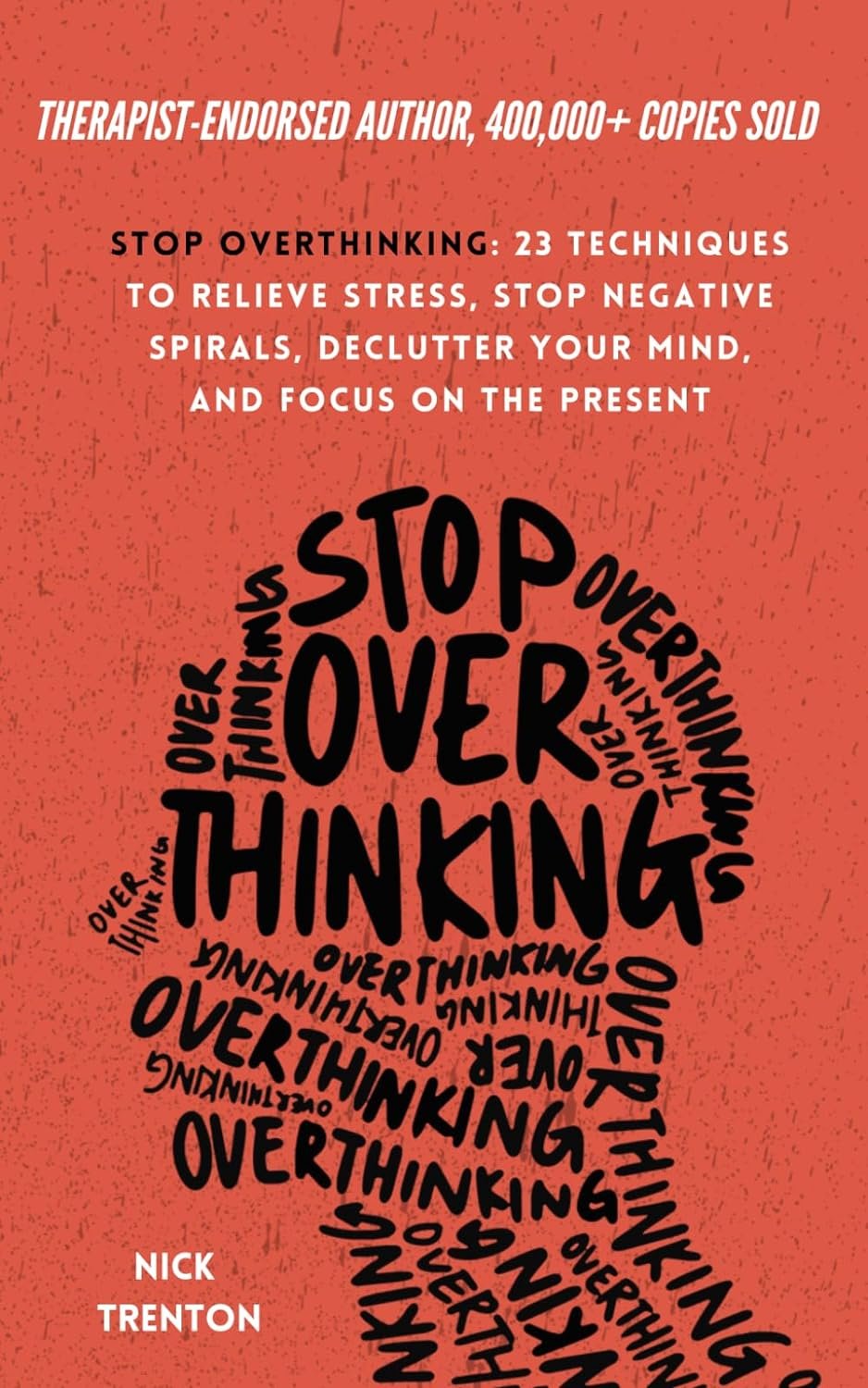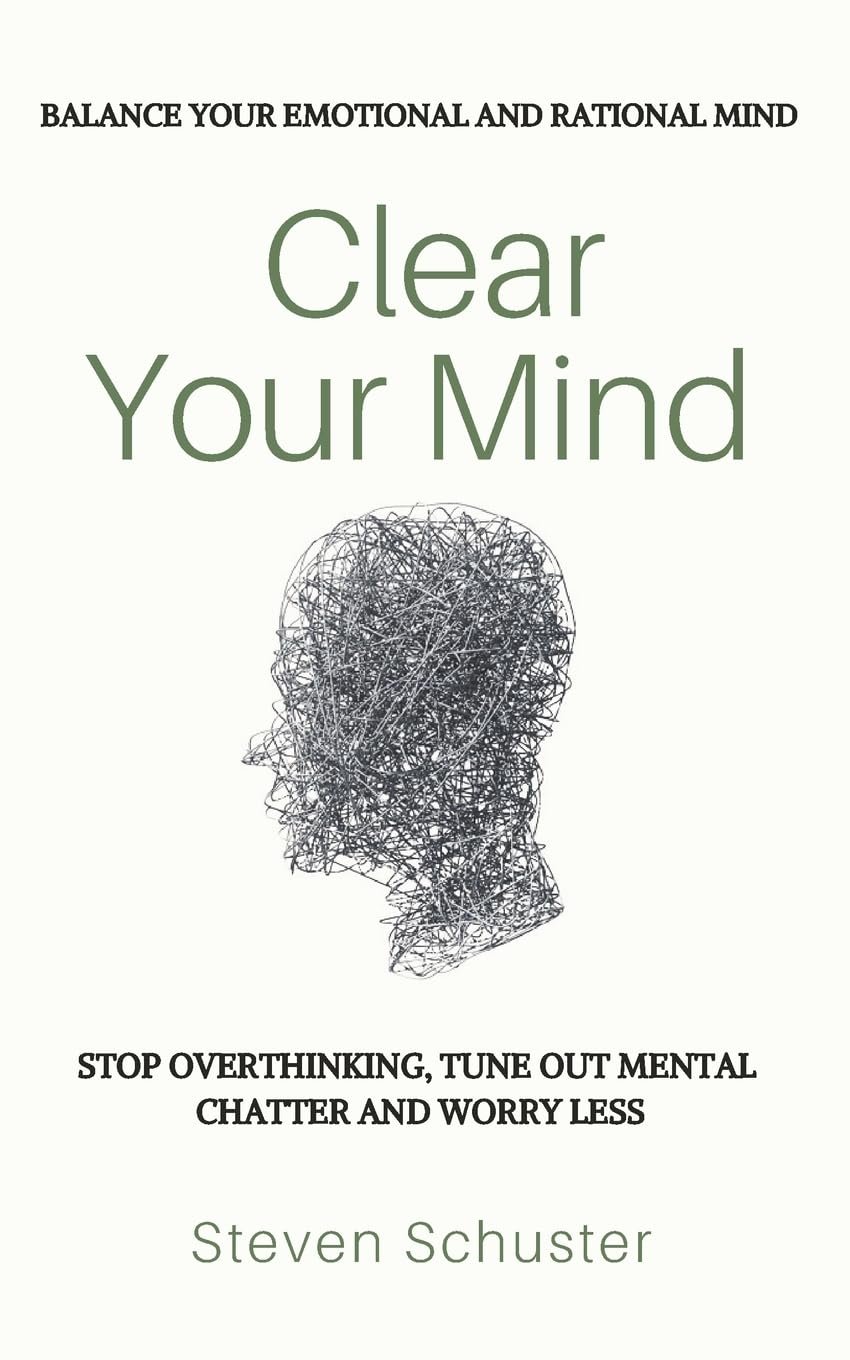Relationships evolve, and so do the feelings within them. But when you start questioning whether you’re losing feelings for your partner or just overthinking, it can create confusion and anxiety. Are these doubts a sign of deeper issues, or are you simply overanalyzing temporary emotions? Am I losing feelings or overthinking? This article will help you differentiate between genuine emotional shifts and overthinking, while providing actionable steps to gain clarity.
Product | Author | Release Year | Therapeutic Approach | Best For | Price | |
|---|---|---|---|---|---|---|
Nick Trenton | 2021 | Mindfulness, Practical Tips | Immediate, actionable techniques | |||
David A. Carbonell | 2020 | CBT, ACT | Managing anxiety and overthinking cycles | |||
Steven Schuster | 2021 | Mindfulness, Productivity | Mental clarity and focus |
Key Takeaways: Am I Losing Feelings or Overthinking?
- Doubting your feelings is a normal part of relationships but doesn’t always mean something is wrong.
- Overthinking can distort your perception of your relationship, leading to unnecessary stress.
- Understanding the difference between losing feelings and overthinking requires introspection, emotional awareness, and sometimes professional guidance.
- Clinical tools like mindfulness, CBT, and relationship counseling can help you navigate your emotions.
Am I Losing Feelings or Just Overthinking? Signs to Consider
Signs You May Be Losing Feelings
It’s important to recognize genuine signs that your feelings for your partner may be fading. This doesn’t always signify the end of a relationship, but it’s essential to approach the situation with honesty and care.
- Lack of Excitement: If the thought of spending time with your partner no longer excites you, this could be an indication of emotional distancing.
- Growing Indifference: Feeling indifferent toward your partner’s needs, struggles, or achievements can be a sign of diminishing emotional connection.
- Avoidance: When you find yourself avoiding physical or emotional intimacy, it might be a red flag that you’re losing feelings.
- Desire for Independence: While independence is healthy, a sudden or strong desire to spend significant time apart from your partner may reflect a change in your emotional attachment.
Signs You Might Be Overthinking
On the other hand, overthinking can create doubts and worries that aren’t necessarily reflective of reality. It can lead you to believe you’re losing feelings when, in reality, you’re stuck in a loop of overanalysis.
- Constant Self-Doubt: Are you constantly questioning your emotions, even when things are going well? This is often a hallmark of overthinking.
- Analyzing Every Small Interaction: If you’re scrutinizing every little moment, wondering whether they mean something deeper, this could be a sign of overthinking.
- External Stressors: Sometimes, stress from other areas of life—work, personal challenges—can spill over into your relationship, leading to unnecessary worries about your emotions.
- Fear of Commitment or Past Trauma: If you’ve been hurt before, past experiences may cause you to overthink in a current relationship out of fear of repeating that pain.
Clinical Ways to Understand Your Feelings
1. Practice Mindfulness
Mindfulness helps you stay present and observe your thoughts without judgment. This can help you separate real feelings from anxiety-driven overthinking.
How to Use It: Start with short mindfulness exercises like breathing techniques or body scanning. Focus on how you feel in the moment with your partner instead of analyzing past interactions.
2. Use Cognitive Behavioral Therapy (CBT)
CBT is an effective tool for identifying irrational thoughts and replacing them with balanced ones. If you find yourself obsessing over whether you’re losing feelings, CBT techniques can help clarify your emotions.
How to Use It: When negative thoughts arise, ask yourself if there’s evidence to support these feelings. For example, “Do I have real reasons to believe I’m losing feelings, or am I letting small doubts grow?”
3. Seek Relationship Counseling
A professional therapist can help both you and your partner navigate these confusing emotions. Counseling can provide insights into whether you’re truly losing feelings or just experiencing temporary doubt.
How to Use It: Therapy doesn’t need to be a last resort. Engaging in couples counseling can help clarify feelings and improve communication before the relationship hits a breaking point.
Recent Developments in Understanding Relationship Emotions
Research into relationship dynamics has increasingly focused on the role of anxiety in overthinking, with studies highlighting that individuals who struggle with attachment anxiety are more prone to overanalyzing their relationships.
New digital tools like the Lasting App offer guided relationship counseling from the comfort of your phone, helping individuals differentiate between losing feelings and overthinking. These tools combine elements of CBT and emotionally focused therapy (EFT) to help users manage anxiety-driven doubts in relationships.
Additionally, neuroscience-based studies on love and attachment have revealed that emotional disconnection is often linked to high levels of stress hormones. Experts recommend reducing external stressors and engaging in calming activities like yoga or meditation to help regulate your emotional state.
Top Experts and Entities in the Field
- Dr. Sue Johnson, a clinical psychologist and the creator of Emotionally Focused Therapy (EFT), is a leader in the study of emotional attachment in relationships. Her work emphasizes that emotional disconnect can often be mended through better communication and understanding.
- Esther Perel, a renowned psychotherapist, continues to explore the nuances of modern relationships. Her work, especially around the topic of love and desire, sheds light on how doubts can sometimes arise in long-term relationships and how to manage them.
- The Gottman Institute, founded by Dr. John and Julie Gottman, has pioneered relationship research. Their Sound Relationship House Theory provides a practical framework for understanding relationship dynamics and working through emotional issues.
How to Take Action
If you’re struggling with whether you’re losing feelings or just overthinking, here are some steps to help you gain clarity:
- Journal Your Thoughts: Writing down your thoughts and feelings can help you process them more clearly and differentiate between emotions and fleeting doubts.
- Talk to Your Partner: Open and honest communication is key. Share your feelings and concerns without placing blame, and see how your partner responds.
- Give Yourself Time: Emotions can be complicated. Give yourself time to work through your thoughts and consider both internal and external factors that may be contributing to your doubts.
Other Interesting Articles
- Best OCD Workbook: Top 5 Choices for Effective Symptom Management
- Best Mental Health Books for Young Adults in 2024
- Best Books About PTSD: Top 5 Recommendations
- Best Planner for ADHD: Comprehensive Guide for 2024
- Best Books for OCD: Unlocking the Mind
About the Author
This article was written by Paul Wellness, an expert in mental health, emotional well-being, and relationship dynamics. For more insights and advice on navigating your emotions, visit Paul Wellness.





